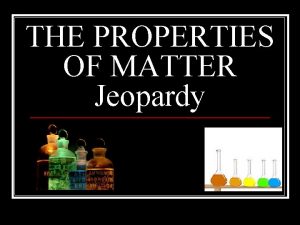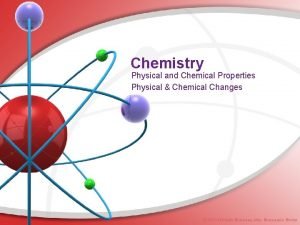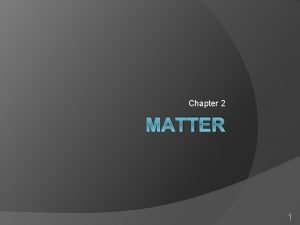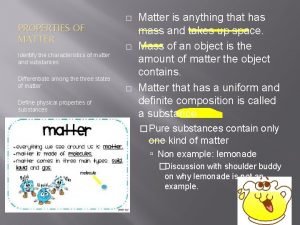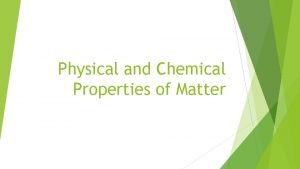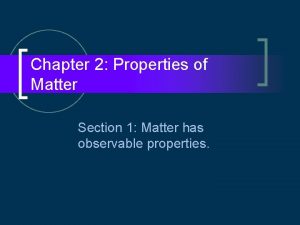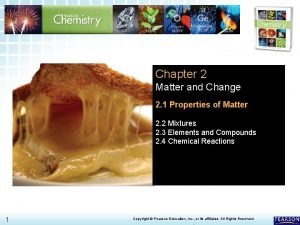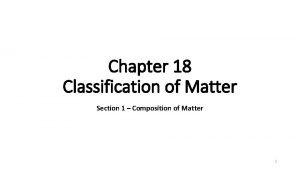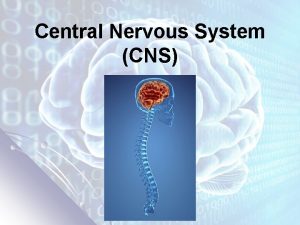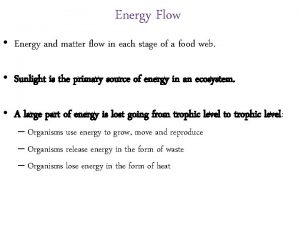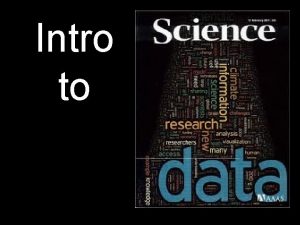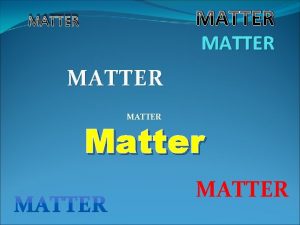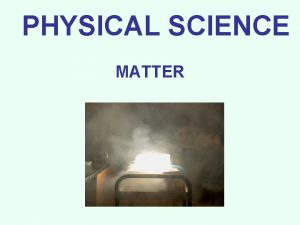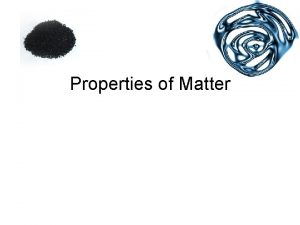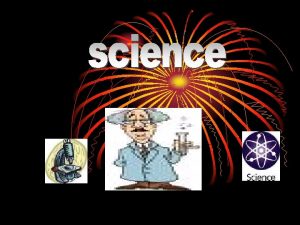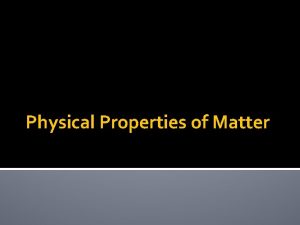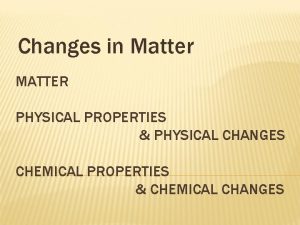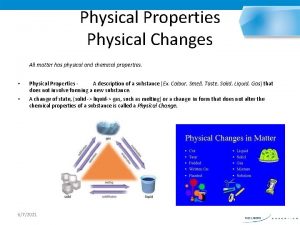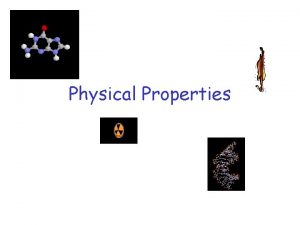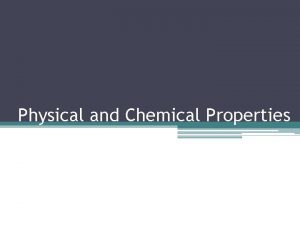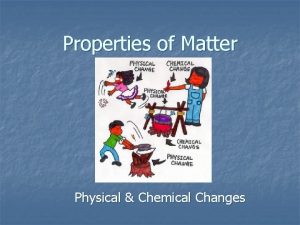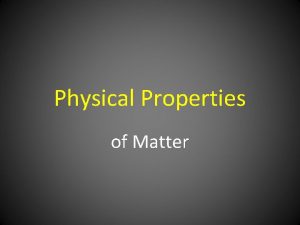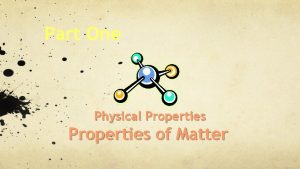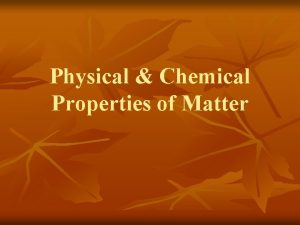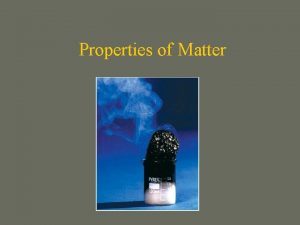Properties of Matter Chapter 4 Physical properties Characteristics

















- Slides: 17

Properties of Matter Chapter 4

Physical properties • Characteristics that can be evaluated without changing the composition of the material. • Examples – – color odor taste feel - density - melting point - boiling point - compressibility

Examples of Physical Properties

Chemical Properties • Result in a change in the composition of a material. • Chemical Reaction - how the change occurs. • Example A chemical property of wood is it’s ability to burn - combustion. (Reactants and Products are very different)

Changes • Physical Changes - can be carried out without changing the composition of a substances. • Chemical Changes – are changes that change the composition of a substance.


Which are chemical or physical changes? • Mulching leaves • Milk turning sour • Making wine • Making ice water • Beer going flat • Leaves changing color

Energy • Energy is the capacity to do work. • Types of energy – Kinetic energy – Potential energy – Thermal energy • Measured in Joules or Calories

Temperature and Heat • Temperature is a measure of average kinetic energy • Heat is a measure of total energy

Specific Heat • the amount of heat required to change the temperature of a substance by a specified amount. – Specific heats • • • water Al Cu Fe Au 1. 0 cal/g o. C or 4. 184 J/g o. C 0. 216 cal/g o. C or 0. 902 J/g o. C 0. 092 cal/g o. C or 0. 385 J/g o. C 0. 113 cal/g o. C or 0. 473 J/g o. C 0. 031 cal/g o. C or 0. 131 J/g o. C

Law of Conservation of Energy • Energy can be neither created nor destroyed.

Law of conservation of Mass and Energy • The sum on mass and energy is conserved.

Energy and Food


How many calories will you get from eating one slice of pizza?

• How long must you swim to use up the energy that you get from a piece of pizza?

Does the calories from fat make sense?
 Physical properties of matter jeopardy
Physical properties of matter jeopardy Graphic organizer about properties of matter
Graphic organizer about properties of matter Physical properties of matter
Physical properties of matter Chapter 2 section 1 classifying matter answer key
Chapter 2 section 1 classifying matter answer key Properties and characteristics of matter
Properties and characteristics of matter Physical and chemical properties
Physical and chemical properties Chapter 2 properties of matter
Chapter 2 properties of matter Chapter 2 properties of matter answer key
Chapter 2 properties of matter answer key Classification of matter section 1 composition of matter
Classification of matter section 1 composition of matter What is the difference between gray and grey
What is the difference between gray and grey Classification of matter section 1 composition of matter
Classification of matter section 1 composition of matter Cerebral aqueduct
Cerebral aqueduct Section 1 composition of matter
Section 1 composition of matter Gray matter and white matter
Gray matter and white matter What is grey matter
What is grey matter Flow energy review
Flow energy review Physical property examples
Physical property examples Physical state of matter
Physical state of matter
